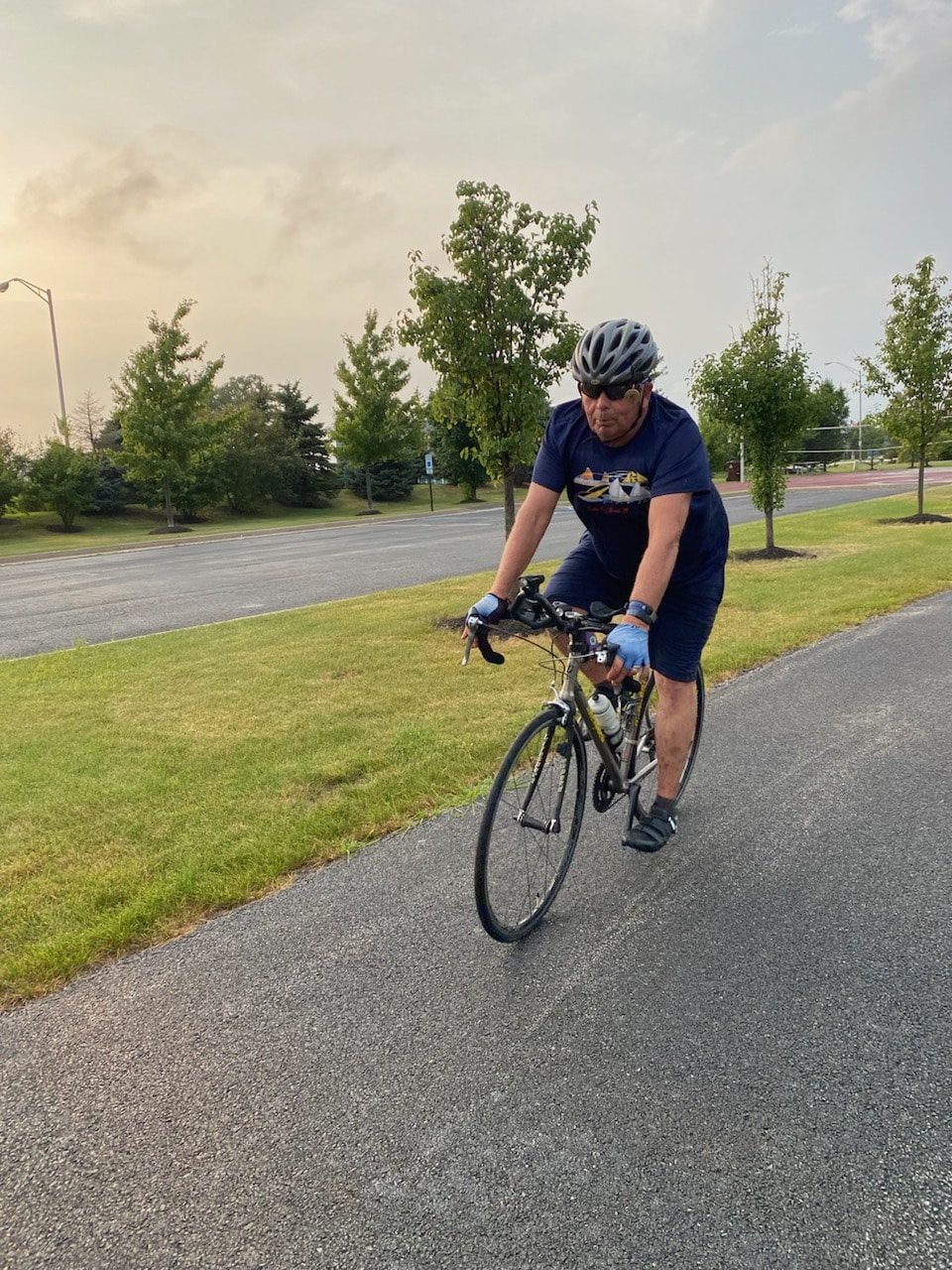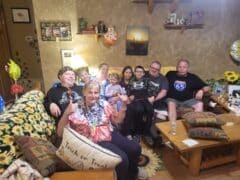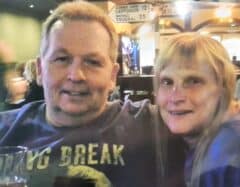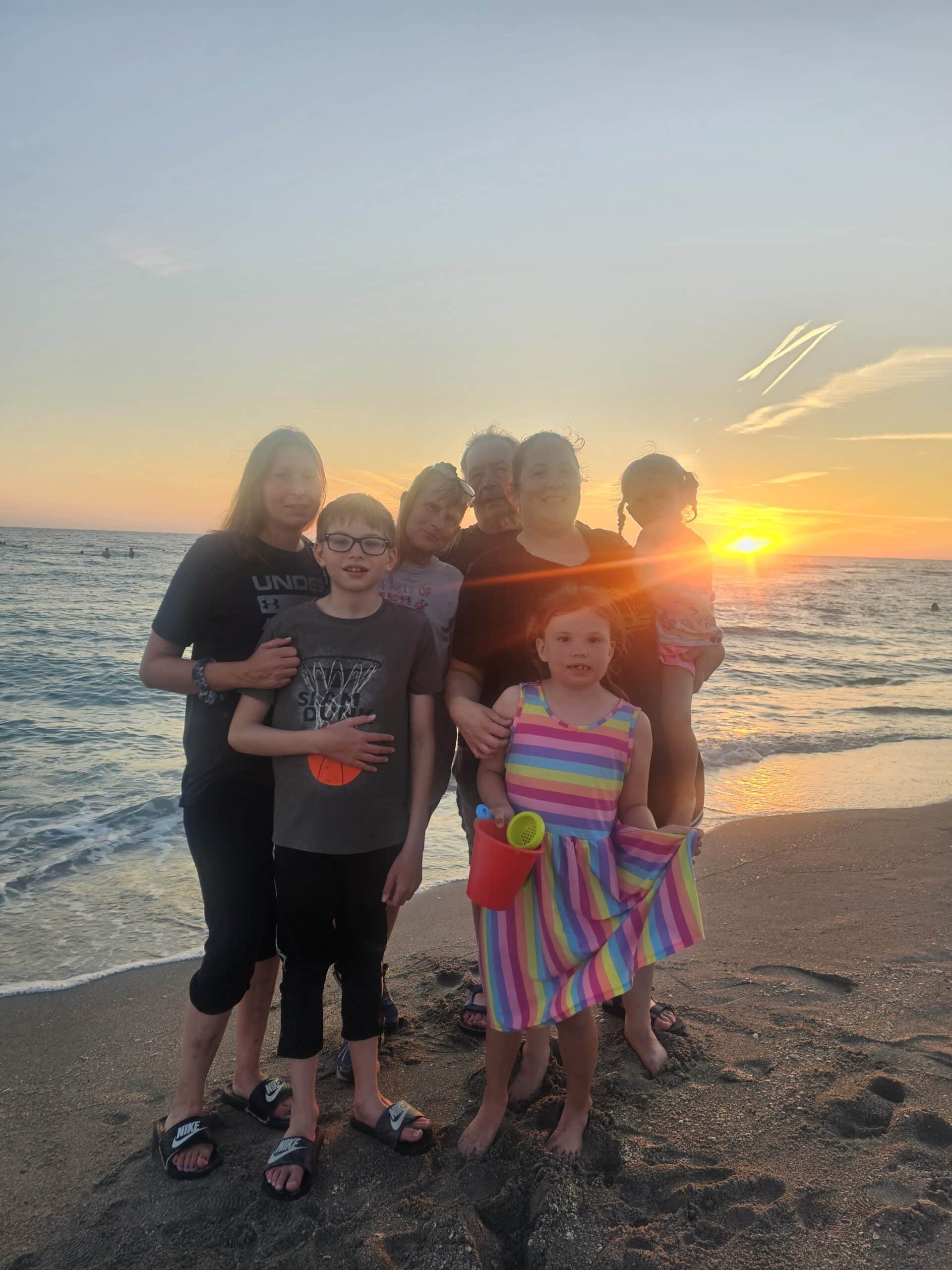Barry, Chronic Lymphocytic Leukemia/Small Lymphocytic Lymphoma
Barry, Chronic Lymphocytic Leukemia/Small Lymphocytic Lymphoma
My journey with lymphoma began in 2005. I went to a urologist for a procedure, when the doctor found some inconsistencies in my blood work. I was sent back to my primary doctor who ran some additional tests, and diagnosed me with chronic lymphocytic leukemia/small lymphocytic lymphoma (CLL/SLL).
Before my diagnosis I rarely got sick – I completed high school with perfect attendance. I worked on a railroad as a conductor for 43 years and can count the number of individual sick days I took on one hand. The idea of being sick was foreign and very difficult for me to accept. Additionally, the thought of leaving my family at such a young age paralyzed me with fear.
My primary doctor referred me to a hematologist at Northwestern in Chicago. My first visit to the CLL/SLL expert gave me a new lease on life, as he assured me that there had been many great advances in the field of lymphoma. At first, my doctor decided to monitor my blood counts and placed me on “watch and wait”.
Since I was on watch and wait, I decided only to share my diagnosis with my wife. I did not want to burden my family with this diagnosis at this early stage. Originally, I was going to tell the rest of my family only if I needed treatment. However, my daughter Dawn, an aspiring nurse at the time learned about my CLL diagnosis during a doctor’s visit I had for an unrelated procedure. My daughter was so impressed by all my caregivers that she elected to focus her career on becoming an oncology nurse.

I then shared my diagnosis with the rest of my family members. By then I had attended several Lymphoma Research Foundation educational programs which allowed me to better explain my diagnosis/prognosis to others. My high school class slogan was ‘Knowledge is Power”. This did not mean much at the time but now resonates with me.
After a few years of monitoring my blood, I was treated with Campath and Rituxan. The treatment regimen lasted 18 weeks and I luckily experienced minimal side effects. I was in progression-free survival for several years without treatment.
However, when I relapsed, we decided to proceed with Ibrutinib oral targeted therapy. At first, this treatment option was effective, and I wasn’t experiencing side effects. However, after 11 months of treatment, I started to experience excessive swelling. I consulted with my doctor. We tried adjusting the medication but ultimately decided to discontinue Ibrutinib.
My CLL journey was on “watch and wait” for over 5 years. I started consulting a CLL specialist in Ohio with whom I had family connection. I was progressing once again. There was a joint decision made by both of my CLL specialists and I to enroll in a LOXO 305 clinical trial. I did very well on this drug as far as CLL.
Then, I developed two enlarged lymph nodes in my right armpit. In my 2022 annual visit to my Ohio CLL specialist, he became quite alarmed upon physical exam. Subsequent testing revealed I had Richter’s Transformation to Hodgkin lymphoma.
I completed a 6 month course of Adriamycin, Brentuximab, Vincristine, and Dacarbazine IV treatment. I did quite well on Hodgkin treatment and secured a remission. Fatigue and peripheral neuropathy were the main side effects of this treatment. I was persistent with acupuncture, physical therapy, reflexology, and follow up with a podiatrist that I have minimized residual neuropathy. At the same time, I continued to treat the CLL but switched to Alcalbrutinin, another BTK inhibitor, which kept my CLL in check.


Genetic testing revealed that I have a CHEK2 mutation. Subsequent screening revealed that I had early stage thyroid cancer. Once this is removed in the coming weeks, I will be a 3 time cancer survivor.
I have found the more you learn about the disease, the less fearful you are about it.

My journey has been better than most. I attribute this to four things:
1. Early diagnosis as I have never dealt with any severe symptoms only side effects from treatment.
2. Availability of expert hematologists at academic medical centers from the onset of my disease and continued lasting relationships built on trust and mutual respect. I refer to my care team of 3 consulting hematologists as “my CLL trifecta.”
3. I have enjoyed tremendous family support.
4. Educating myself by attending workshops in person or online. I have found the more you learn about the disease, the less fearful you are about it.
Overall, I feel optimistic and maintain a positive attitude ready for where my cancer journey may take me next.